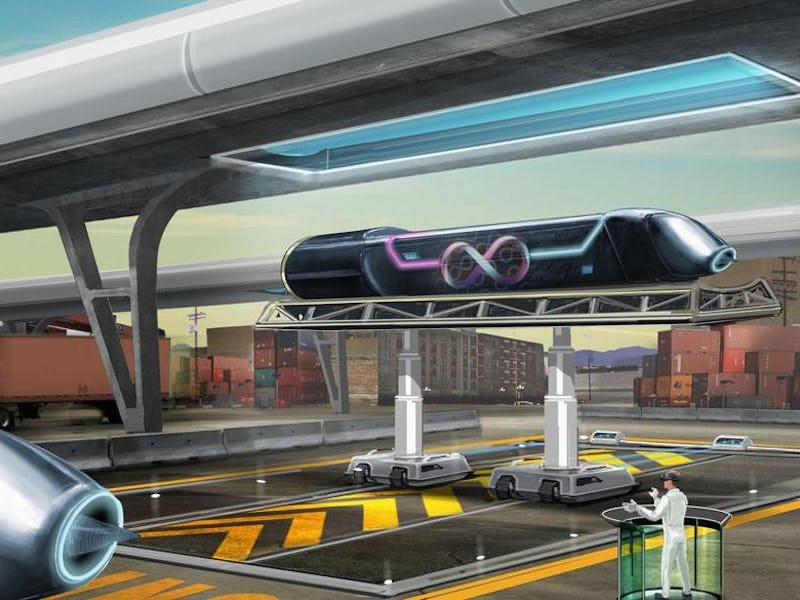The United States is famed for being first in tech, but it could miss out on the debut of one of the 21st-century’s biggest breakthroughs. In an interview published Monday, transport secretary Anthony Foxx said that the vacuum-sealed Hyperloop train system may find itself up against regulations that mean it’s easier to get started in other countries first.
“The technology, the science behind it, is very sound, but it’s one of those examples of, the technology may be there before the government is,” Foxx told Recode during a special exit interview as the Obama administration prepares to leave office. “Will it happen some place? Absolutely, I’m sure it will. Not even sure it’s going to happen first in the U.S. to be honest, but I think there’ll be some proof points out there to show that Hyperloop is a real thing.”
The problem is that, currently, rail regulations are unsuitable for the 700-mph train. Foxx compared applying current regulations to the train as “like putting a square peg in a round hole.” Unlike self-driving cars that act similarly to current cars, rule changes that would suit Hyperloop would require Congress’ seal of approval.
Setting aside the regulatory hurdles, Foxx was largely positive about the project’s prospects. He noted that he spoke to Elon Musk when he first released the idea to the world in 2013, during a debate over California high-speed rail. The Hyperloop was designed to use existing right-of-way, one of the most expensive parts of new rail projects, so its unique design was seen as a way of cutting costs.
Foxx was not sure the Hyperloop would debut in the U.S., but never say never. Hyperloop One, a private company looking to make Musk’s dream come to life, announced 35 finalists in its global challenge earlier this month, which could mean a Hyperloop coming to the likes of Nevada, Colorado, Boston, or Los Angeles.
The long-term plan would see these smaller regional projects linked up into a global network, which could one day create the ultimate global transportation system.
